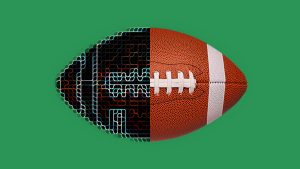
Tips for First-Time Gun Owners: A Guide Choosing and Handling Your Weapon
Making the decision to buy a pistol for serious self-defense purposes came with a lot of obligations and questions. First and foremost, should an owner be willing to take a life in any case, even if your own or, worse, the lives of my family members were in jeopardy?
You determine whether the answer will be strongly affirmative, as terrifying as that option was to consider.
What Should You Do First?
Firearms training isn’t only about learning to shoot. More fundamentally, it covers strategies for avoiding potentially dangerous situations, teaches home and outdoor defense measures, and discusses the legal issues and liability implications linked with the use of lethal force. It is quite evident that shooting someone under any circumstances, no matter how urgent or justifiable, will be a major and painful life-changing event.
How to Pick a Handgun
You’ll probably get a variety of answers if you ask a group of knowledgeable people what type, caliber, and model of a handgun to buy. If you have any prior guns experience, your body stature, and hand size, if the gun is primarily meant for concealed carry and/or home defense, and how likely you are to engage in the recreational and defensive exercise, informed responses should be considered.
Basic considerations before purchasing a handgun for self-defense
- Choose anything from a well-known, reputable company. You can save money by purchasing a secondhand name-brand pistol in good condition, but make sure it’s safe by having it checked out by a qualified gunsmith before firing it.
- Don’t get a small-caliber gun with the goal of scaring an enemy away or hurting them. In the worst-case scenario, you should buy a gun to use as a devastating last-ditch assault weapon.
- If you want something small enough to carry in your purse or if you sleep in an upper-level bedroom, you should carefully consider acquiring two separate firearms. In the event of a break-in downstairs, where the burglar will be the most distant, the larger, more accurate one should be easily accessible upstairs. As a result, it should be the rifle you spend the most time at the range practicing with in order to gain skill and confidence.
- Revolvers have the advantage of practically never malfunctioning, but even the greatest semiautomatics can occasionally fail to chamber a round or jam (“stove pipe”). Inexperienced shooters who don’t hold the pistol firmly enough are more likely to have such issues. It’s critical to learn how to get out of a hole quickly.
Choose a dependable first gun that you will enjoy exercising with on a regular basis so that you can learn to react swiftly and effectively under pressure. Many new weapons require a time of break-in before they can be relied upon to be completely reliable. Some people are picky about which brand of ammo they can trust. Visit us at ar15 build now to know more.
Continue Reading











